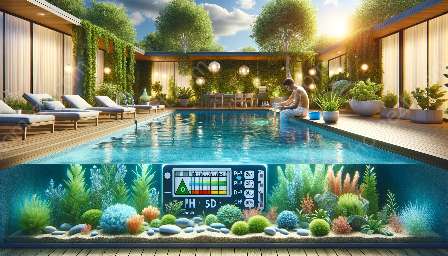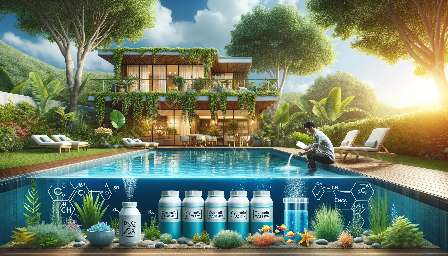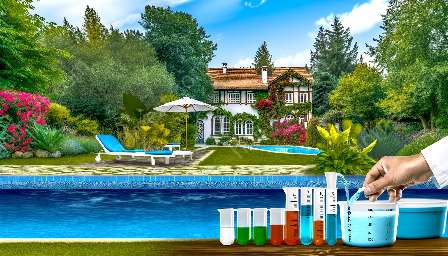Chemical additives play a crucial role in maintaining the balance and quality of water in swimming pools and spas. The use of these additives is essential for ensuring clean, safe, and inviting water for swimmers. In this comprehensive guide, we will explore the different types of chemical additives, their functions, and their compatibility with water chemistry in swimming pools and spas.
The Importance of Water Chemistry in Swimming Pools and Spas
Water chemistry is a critical aspect of pool and spa maintenance. It involves managing various water parameters to ensure the water is clean, safe, and comfortable for swimmers. Proper water chemistry helps prevent the growth of algae and bacteria, maintains proper pH levels, and prevents scale and corrosion in pool equipment.
When it comes to water chemistry, factors such as pH, alkalinity, calcium hardness, and sanitizer levels need to be carefully monitored and adjusted. Chemical additives are an essential tool for maintaining these parameters at the appropriate levels.
Types of Chemical Additives
Several types of chemical additives are commonly used in swimming pools and spas to maintain water chemistry:
- Sanitizers: Sanitizers are used to kill bacteria, viruses, and algae in the pool water. Common sanitizers include chlorine, bromine, and salt systems.
- pH Adjusters: pH levels need to be maintained within a specific range to ensure water quality. pH adjusters such as pH increasers and decreasers help to balance the acidity or alkalinity of the water.
- Alkalinity Balancers: These additives help to stabilize the pool water's alkalinity, which in turn helps to buffer pH levels and prevent rapid pH fluctuations.
- Calcium Hardness Additives: These additives are used to raise or lower the calcium hardness levels in the water to prevent scaling or corrosion of pool surfaces and equipment.
- Algaecides: Algaecides are used to prevent and control the growth of algae in pool water, helping to keep the water clear and free from algae blooms.
- Enzymes: Enzymes are often used to break down organic matter, oils, and other contaminants in the water, improving water clarity and reducing the need for other chemicals.
- Stabilizers: Stabilizers, such as cyanuric acid, help to protect chlorine from degradation due to UV light, thereby extending its effectiveness in sanitizing the water.
Compatibility with Water Chemistry
Each type of chemical additive plays a specific role in maintaining water chemistry, and their compatibility with the water chemistry of swimming pools and spas is crucial for achieving optimal results. It's important to understand how each additive interacts with the water's parameters and how they can impact the overall water quality.
For instance, the use of certain chemicals can affect the pH, alkalinity, or calcium hardness levels of the water. Understanding these interactions is essential for avoiding imbalances that could lead to water quality issues or damage to pool equipment.
Application and Maintenance
Proper application and regular maintenance of chemical additives are key to ensuring their effectiveness. It's important to follow manufacturer instructions for dosing and application methods to achieve the desired results while minimizing any potential adverse effects.
Regular water testing is essential to monitor the chemical parameters and adjust the dosages of additives as needed. By staying proactive with testing and maintenance, pool and spa owners can ensure that the water chemistry remains within the optimal range for swimmers.
Conclusion
Chemical additives are indispensable for maintaining water chemistry in swimming pools and spas. By understanding the functions and interactions of different additives, pool and spa owners can effectively manage water quality, create a safe and inviting swimming environment, and prolong the lifespan of pool equipment. With proper application, monitoring, and maintenance, chemical additives play a vital role in supporting the overall health and enjoyment of swimming pool and spa facilities.



















